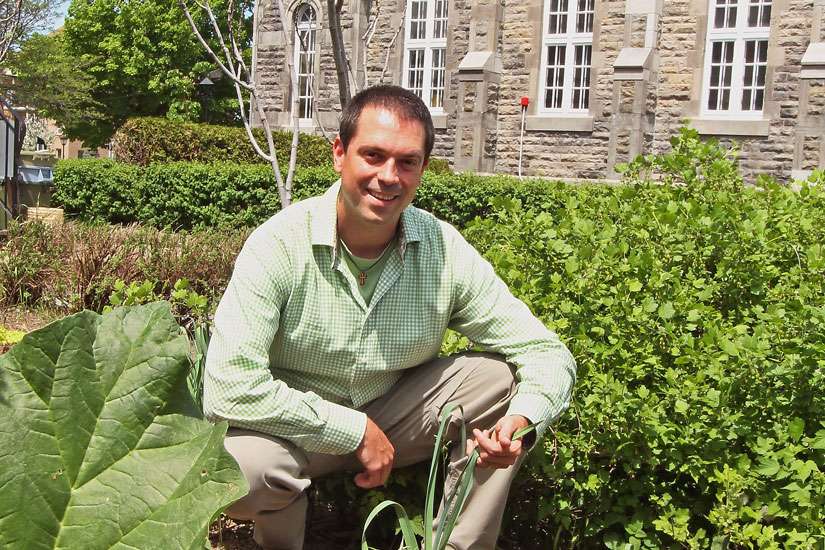Founded by the United Church, the idea was to inspire faith communities to become ecologically responsible and encourage them to practise an eco-spirituality rooted in Judeo-Christian tradition. Three years later, it became an ecumenical cause.
As the movement celebrates its 10th anniversary, 50 congregations across Canada, including 20 Roman Catholic parishes, have adopted environmentally sustainable, clean-energy practices.
“To become part of the network all a parish has to do is set up a green committee. We offer a variety of suggestions that can be implemented. It is not a model we impose,” said Normand Levesque, national director of the Green Churches movement. “You can begin doing easy things to save energy, by regulating the space used. For example, you don’t need to heat a church every day if it is only used once a week. It could be something as simple as printing documents on both sides of a sheet of paper. ”
Some parishes now buy locally produced communion wine for the Eucharist instead of importing communion wine. Others, which can afford to, have installed geo-thermal heating.
“Alternative energy costs (more) in the short term, but pays off in the long term,” said Levesque.
Other parishes have introduced composting, and one parish holds an outdoor service each summer to be in communion with the wonder of nature.
Levesque, who holds Masters degrees in meteorology and theology, became a pitchman for Christian ecology while he was still a youth minister.
“While I was teaching science I began to recognize how serious the environmental crisis is, and that Scripture teaches Christian ecology. The Old Testament has all kinds of references to ecology, and in all the Gospels you will find parables about nature. Science and religion have given me a balance. How can we worship a creator and not take care of His creation? It just doesn’t make sense.”
Initially, Levesque said the message was generally greeted with indifference or ignorance. Some people would come up to him and say they really weren’t concerned whether communion hosts were made of organic grain as long as they had been consecrated properly. Others insisted the job of the Church was to take care of the poor, not to get involved in the political debates over global warming.
The movement was given a boost a year ago, he said, when Pope Francis issued Laudato Si’, his encyclical on the environment. The document addressed the “harm we have inflicted on Earth by our irresponsible use and abuse of the goods with which God has endowed her,” he said.
“Since the Pope’s encyclical more and more I am being asked to speak across Canada about what we offer. There is a new awareness, a new level of curiosity in the movement. We started with five churches. By 2026 I believe we will have 500.”
The movement’s national headquarters is in Saint-Elzéar parish in Laval, Que., and is maintained by a growing number of volunteers, including Fr. André Beauchamp, a leading French-Canadian theologian and ecologist. It is financed by grants from several religious orders of nuns and priests.
A 10th anniversary fundraising gala was scheduled for June 3 in Saint Columba House, the Montreal community ministry of the United Church where it all began.
For further information, contact info@greenchurches.ca.
(Hustak is a writer in Montreal.)


